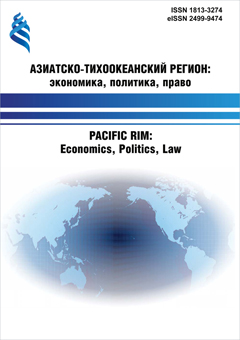INEFFECTIVE DECENTRALIZATION OF STATE PROPERTY IN THE FORESTRY OF PRIMORSKY KRAI: CAUSES AND POSSIBLE CONSEQUENCES
Original article
DOI:
https://doi.org/10.24866/1813-3274/2021-4/29-51Keywords:
state ownership, decentralization of state ownership, decentralization of management, municipal management, delegation of powers, property rights, institutional changes, institutional structure, forestry, forest industry, forestry problems, Forest Code of the Russian Federation, forest resources, forestry management, resource reproduction, shadow economy, corruption, abuse of office, Far East, Primorsky Krai.Abstract
The introduction describes the problem of ineffective decentralization of
state property as a key factor in the systemic crisis of forestry in Primorsky Krai. The theoretical part of the article is devoted to the analysis of research works on the classification
of property rights for natural resources and the policy of decentralization in different
countries of the world; the situation in forest management relations between entities on
the territory of Primorsky Krai is also reviewed. A verbal model of decentralization in
Primorsky Krai has been developed, possible barriers hindering the development of the
forestry industry in the region and affecting the efficiency of this policy are presented.
The empirical part of the research work provides practical examples of corruption cases,
circumstances of abuse of office, as well as examples of cases of incompetence of state
bodies in the forestry sector. In conclusion, the authors, based on the described material,
provide evidence of the ineffectiveness of decentralization in Primorye that leads to the
depletion of forest resources, a decrease in revenue items of the regional budget and a
general deterioration in living conditions in the region.



